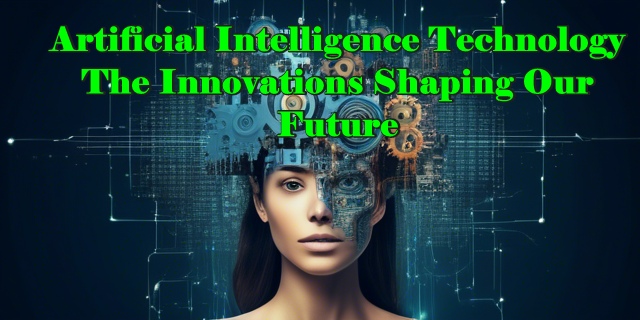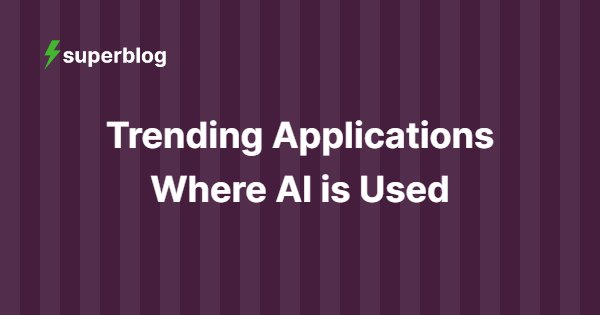Artificial intelligence (AI) is rapidly transforming the healthcare industry, revolutionizing the way diseases are diagnosed and treated. By leveraging advanced algorithms and vast datasets, AI systems are enhancing diagnostic accuracy, personalizing treatment plans, and improving patient outcomes.
One of the most significant applications of AI in healthcare is in medical imaging. AI algorithms can analyze medical images, such as X-rays, CT scans, and MRIs, with unprecedented precision and speed. This enables healthcare professionals to detect subtle abnormalities and make more accurate diagnoses, leading to earlier interventions and improved patient prognoses.
AI is also playing a crucial role in drug discovery and development. By analyzing vast databases of molecular data, AI systems can identify potential drug targets and predict the efficacy and safety of new drugs. This accelerates the drug development process, bringing new therapies to market faster and at a lower cost.
Furthermore, AI is revolutionizing personalized medicine. By integrating patient data from electronic health records, wearable devices, and genetic testing, AI systems can create personalized treatment plans tailored to each individual’s unique needs. This approach optimizes treatment outcomes and reduces the risk of adverse effects.
AI is also transforming the delivery of healthcare. Virtual assistants powered by AI can provide patients with 24/7 access to medical information and support. Remote monitoring systems enabled by AI can track patient health data and alert healthcare providers to potential health issues, enabling early intervention and preventing complications.
However, the adoption of AI in healthcare also raises ethical and regulatory concerns. It is essential to ensure that AI systems are developed and deployed responsibly, with safeguards in place to protect patient privacy and prevent bias.
In conclusion, AI is revolutionizing healthcare by enhancing diagnostic accuracy, personalizing treatment plans, and improving patient outcomes. As AI technology continues to advance, we can expect even more transformative applications in the future, leading to a healthier and more efficient healthcare system.
The Ethical Implications of AI: Balancing Progress with Responsibility
The Ethical Implications of AI: Balancing Progress with Responsibility
Artificial intelligence (AI) has emerged as a transformative technology with the potential to revolutionize various aspects of human life. However, its rapid advancement has also raised profound ethical concerns that demand careful consideration.
One of the primary ethical dilemmas posed by AI is the potential for job displacement. As AI systems become increasingly sophisticated, they may automate tasks currently performed by humans, leading to job losses and economic disruption. It is crucial to address this issue proactively by investing in education and retraining programs to equip individuals with the skills necessary to thrive in an AI-driven economy.
Another ethical concern is the potential for AI to exacerbate existing biases and discrimination. AI systems are trained on vast amounts of data, which may reflect societal biases. If these biases are not addressed, AI systems may perpetuate and amplify unfair outcomes, particularly for marginalized groups. It is essential to implement robust measures to ensure that AI systems are developed and deployed in a fair and equitable manner.
Furthermore, AI raises concerns about privacy and data security. AI systems rely on collecting and processing large amounts of personal data, which can pose risks to individuals’ privacy. It is imperative to establish clear regulations and ethical guidelines to protect individuals’ data and prevent its misuse.
Additionally, the development of autonomous AI systems, such as self-driving cars, raises questions about responsibility and liability in the event of accidents. It is crucial to establish clear legal frameworks that determine who is responsible for the actions of AI systems and how liability is assigned.
Moreover, AI has the potential to impact human relationships and social interactions. As AI systems become more advanced, they may challenge traditional notions of human agency and autonomy. It is important to consider the ethical implications of AI’s influence on human behavior and to ensure that AI systems are designed to complement and enhance human capabilities rather than replace them.
Balancing the progress of AI with ethical responsibility requires a multifaceted approach. Governments, industry leaders, and researchers must collaborate to develop ethical guidelines and regulations that govern the development and deployment of AI systems. It is also essential to foster public awareness and engagement on AI ethics to ensure that the technology is used for the benefit of society as a whole.
By addressing these ethical concerns proactively, we can harness the transformative potential of AI while mitigating its potential risks. It is through responsible innovation and a commitment to ethical principles that we can ensure that AI serves as a force for progress and human well-being.
AI in Education: Enhancing Learning and Personalizing Experiences
AI in Education: Enhancing Learning and Personalizing Experiences
Artificial intelligence (AI) is revolutionizing the education landscape, offering transformative solutions to enhance learning and personalize experiences for students. By leveraging AI’s capabilities, educators can unlock a world of possibilities that empower students to reach their full potential.
One of the most significant benefits of AI in education is its ability to provide personalized learning experiences. AI-powered platforms can analyze individual student data, such as learning styles, strengths, and weaknesses, to create tailored learning paths. This approach ensures that each student receives the support and resources they need to succeed.
AI also plays a crucial role in adaptive learning systems. These systems use algorithms to adjust the difficulty of learning materials based on student performance. By providing students with challenges that are neither too easy nor too difficult, AI helps them stay engaged and motivated throughout their learning journey.
Furthermore, AI can assist educators in identifying students who may need additional support. By analyzing student data, AI can detect patterns and anomalies that indicate potential learning difficulties. This early detection allows educators to intervene promptly and provide targeted support to struggling students.
In addition to personalized learning, AI offers a range of other benefits in education. AI-powered chatbots can provide students with 24/7 support, answering questions and offering guidance. Virtual reality (VR) and augmented reality (AR) technologies, powered by AI, can create immersive learning experiences that bring abstract concepts to life.
However, it is important to note that the implementation of AI in education should be approached with caution. Ethical considerations, such as data privacy and bias, must be carefully addressed. Additionally, educators need to be adequately trained to use AI effectively and avoid potential pitfalls.
As AI continues to evolve, its potential to transform education is limitless. By embracing AI’s capabilities, educators can create a more equitable, engaging, and personalized learning environment for all students. From personalized learning paths to adaptive learning systems, AI is poised to revolutionize the way we teach and learn, empowering students to achieve their full potential and thrive in the 21st-century workforce.

